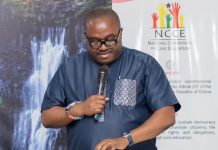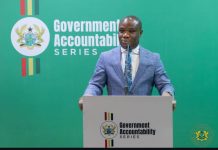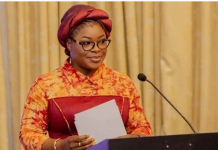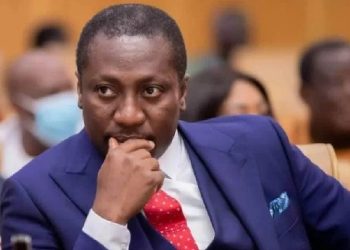World leaders have swiftly reacted to Donald Trump’s stunning victory in the 2024 U.S. presidential election, sending messages of congratulations while outlining their expectations for future cooperation with the United States under his leadership.
As Trump secures a non-consecutive second term, the global response is mixed, with some countries expressing optimism, while others remain cautious due to the polarized nature of his previous presidency.

China: While not directly acknowledging Trump, Chinese Foreign Ministry spokeswoman Mao Ning conveyed that China hopes for “peaceful coexistence” with the United States.
She emphasized that China remains committed to dealing with U.S.-China relations based on mutual respect, peaceful coexistence, and cooperation. She concluded by reiterating that China respects the American people’s choice, reflecting a neutral stance on Trump’s return to office.
Russia: Kremlin spokesperson Dmitry Peskov took a more cautious approach, stating that Russia had no immediate plans to congratulate Trump.
Peskov highlighted the “unfriendly” nature of the U.S. under Trump’s previous administration and suggested that Moscow would wait to judge Trump’s policies based on his “concrete actions and words.” This response underscores the uncertain dynamic between the U.S. and Russia, which had been strained during Trump’s last term.
Israel: Israeli Prime Minister Benjamin Netanyahu expressed enthusiasm over Trump’s victory, describing it as a “new beginning” in U.S.-Israel relations.
Netanyahu celebrated Trump’s “historic return” to the White House, referring to it as a powerful recommitment to the strong alliance between the two nations. His statement emphasized that the victory would open up new opportunities for peace and security in the Middle East, particularly in light of ongoing regional challenges.
Hamas: In contrast, Hamas condemned Trump’s victory, with senior political figure Bassem Naim criticizing the U.S. for its “blind support” of Israel during Trump’s previous term.
Naim warned that such policies were detrimental to the Palestinian people and destabilized the region. He called for an end to this approach, which he argued only exacerbated tensions in the Middle East.
Ukraine: Ukrainian President Volodymyr Zelensky congratulated Trump on his “impressive victory,” expressing hope that his second term would help bring about a “just peace” in Ukraine. Zelensky, who had worked closely with President Biden on U.S. military support against Russian aggression, acknowledged Trump’s “peace through strength” approach, suggesting that it could bring closer diplomatic solutions to the ongoing conflict in Ukraine.
NATO: NATO Secretary General Mark Rutte welcomed Trump’s return to the White House, noting that his leadership would help strengthen the alliance.
Rutte highlighted the importance of maintaining peace through NATO, with the U.S. playing a crucial role in ensuring the security of member states and global stability.
European Union: Ursula von der Leyen, President of the European Commission, congratulated Trump and reaffirmed the strong partnership between the U.S. and the EU.
She emphasized that the transatlantic relationship, which binds over 800 million citizens, remains essential. Von der Leyen expressed confidence that the U.S. and EU would continue working together on issues like trade, security, and climate change.
France: French President Emmanuel Macron offered his congratulations to Trump, stating that he was ready to work with him with “respect and ambition,” building on the relationship developed during Trump’s previous term. Macron noted that while there would be differences in their convictions, their shared goal of peace and prosperity would guide their future cooperation.
Germany: Chancellor Olaf Scholz also congratulated Trump and reiterated Germany’s commitment to working with the U.S. for “prosperity and freedom.” He emphasized that the strong partnership between the two nations would continue to advance the interests of their citizens and global stability.
Qatar: Emir Sheikh Tamim bin Hamad Al-Thani of Qatar congratulated Trump and expressed his desire to strengthen cooperation, particularly in promoting regional and global security and stability.
Qatar, which hosts the largest U.S. military base in the Middle East, plays a key role in Middle Eastern diplomacy, including its efforts to mediate conflicts such as the ongoing Gaza crisis.
Turkey: Turkish President Recep Tayyip Erdogan congratulated Trump as a “friend” and expressed hope that U.S.-Turkey relations would deepen under Trump’s leadership. Erdogan called for resolving global and regional crises, particularly the Palestinian issue and the ongoing conflict between Russia and Ukraine.
Egypt: Egyptian President Abdel Fattah al-Sisi congratulated Trump and expressed his hope that the U.S. could play a positive role in promoting peace and regional stability in the Middle East. Sisi emphasized that the U.S. and Egypt’s strategic partnership would continue to thrive under Trump’s leadership.
India: Indian Prime Minister Narendra Modi congratulated Trump on his victory, praising his historic win. Modi expressed eagerness to renew the collaboration between the U.S. and India, particularly on issues of mutual interest, including security, trade, and economic development.
South Korea: South Korean President Yoon Suk Yeol also congratulated Trump, stating that under his leadership, the future of the U.S.-South Korea alliance would shine even brighter. Yoon expressed anticipation for closer cooperation, particularly on regional security concerns, especially the North Korean threat.
Italy: Italian Prime Minister Giorgia Meloni congratulated Trump, emphasizing the strong and strategic bond between the two nations. Meloni expressed confidence that U.S.-Italy relations would grow stronger during Trump’s second term, reflecting Italy’s commitment to working closely with the U.S. on issues of global importance.
These global reactions reflect both hope and apprehension regarding Trump’s return to power.
While many world leaders expressed readiness to engage with him, concerns remain about his past policies, especially regarding international cooperation, climate change, and security.
As Trump prepares to take office once again, it is clear that the international community is preparing for a new era of U.S. foreign policy under his leadership.























































![[FREE FREE MONEY] Predict and Win a Guaranteed GH¢200 From Us EVERY WEEK](https://wordpress.ghanatalksradio.com/wp-content/uploads/2022/02/Predict-and-Win-Final-09-03-2021-218x150.jpg)
![[Predict & Win – 8th/Oct.] WIN A Guaranteed ¢200 From Us This Week](https://wordpress.ghanatalksradio.com/wp-content/uploads/2021/10/maxresdefault-16-218x150.jpg)
![[Predict & Win – 2nd] WIN A Guaranteed ¢200 From Us This Week](https://wordpress.ghanatalksradio.com/wp-content/uploads/2021/09/maxresdefault-50-218x150.jpg)
![[Predict & Win – 25th] WIN A Guaranteed ¢200 From Us This Week](https://wordpress.ghanatalksradio.com/wp-content/uploads/2021/09/maxresdefault-36-218x150.jpg)
![[Predict & Win – 18th] WIN A Guaranteed ¢200 From Us This Week](https://wordpress.ghanatalksradio.com/wp-content/uploads/2021/09/maxresdefault-23-218x150.jpg)










![[National cathedral] See full list of churches that have contributed since 2018](https://wordpress.ghanatalksradio.com/wp-content/uploads/2020/09/Ghana-National-Cathedral-GhanaTalksRadio-100x70.jpg)



![[BREAKING] Suspected bandits slaughter 37 people in Nigeria’s Zamfara State](https://wordpress.ghanatalksradio.com/wp-content/uploads/2021/01/images-342-100x70.jpg)